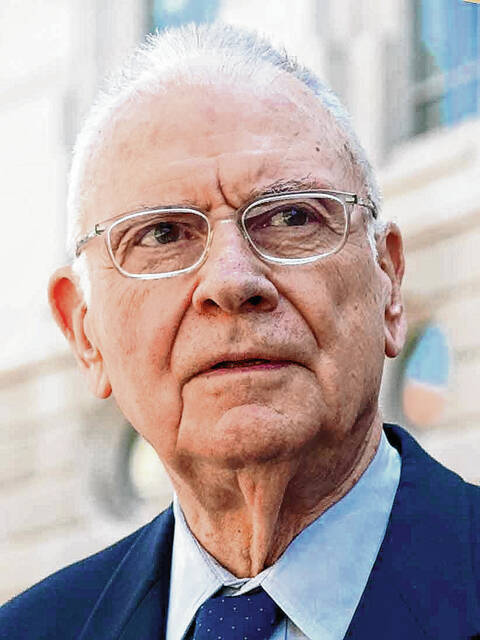We had high hopes for the future of U.S.-Russian relations after the collapse of the Soviet Union three decades ago. The Cold War had ended, and Russia seemed for a time to be moving in the direction of openness and democracy. But those hopes were soon dashed.
Under Vladimir Putin, who has effectively been in charge for over 20 years, Russia has turned increasingly hostile toward the West and aggressive toward its neighbors. It’s not that America hasn’t tried to get along. I cannot remember a U.S. administration that didn’t start its tenure with hopes of improving relations with Russia. Inevitably, they were disappointed.
Today the relationship has reached a low point in a tense standoff over Ukraine that some observers are calling the worst security crisis in Europe since the Cold War. Russia has amassed up to 175,000 troops near the Ukrainian border, prompting fears of an invasion.
Meanwhile, Russia has turned increasingly authoritarian at home. Putin and his allies have restricted protests and detained journalists and critics. Human rights advocates hold Russia responsible for the 2020 poisoning of opposition leader Alexei Navalny, who is serving a sentence in a prison camp near Moscow.
In 2014, Russia invaded and annexed Crimea, a part of Ukraine, leading the U.S. and other Western nations to impose economic sanctions. Russia supports separatists who have been fighting an insurgency in Eastern Ukraine. This spring, President Joe Biden imposed a new round of sanctions over Russian meddling in American elections and cyberattacks that breached U.S. government computer networks.
It’s worth noting there are many areas in which U.S. and Russian interests are – or could be – compatible. Nuclear arms control is an obvious example: The United States and Russia control most of the world’s nuclear weapons, and it’s in everyone’s interest to prevent them from falling into the wrong hands. We have mutual interests in stability in Afghanistan, the status of Iran’s nuclear program and the operation of the International Space Station. But the Ukraine impasse, which recalls conflicts of the Cold War era, is getting in the way of progress.
Russia and Ukraine, which were the largest and most important republics of the Soviet Union, have cultural, economic and political ties that go back centuries. Important Soviet leaders and Russian writers were from Ukraine, an important agricultural, industrial and military region. Many Russians seem to see the split with Ukraine, which became independent in 1991, as a tragedy. Putin has emphasized the countries’ ethnic and historic connections and suggested Russia needs a friendly Ukraine as a buffer against the West. Ukraine’s leaders and much of its population, however, have turned increasingly westward, even applying to join the NATO alliance, which Russia takes as a provocation.
That was the setting when Biden and Putin met Dec. 7 for a one-on-one video conference, a session that both sides described as tense but productive. Going forward, we should cooperate with Russia where we can. We should welcome educational, cultural and business exchanges where appropriate. And we should continue to warn Putin about the dangers of his aggressive stance toward Ukraine.
Above all, we should keep talking, but we need to remain clear-eyed about how difficult and tension-filled this relationship is. We need to make every effort to keep the conflict from spiraling out of control.





